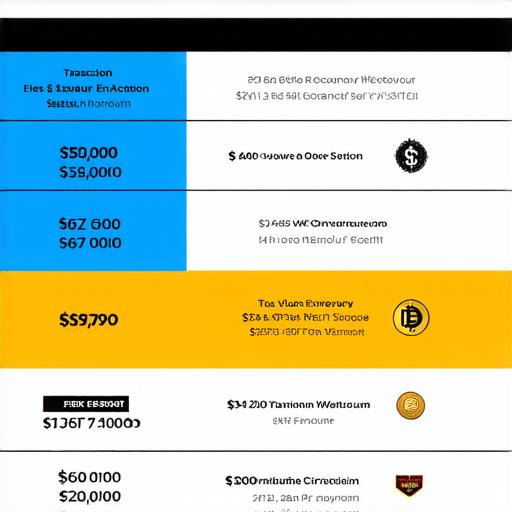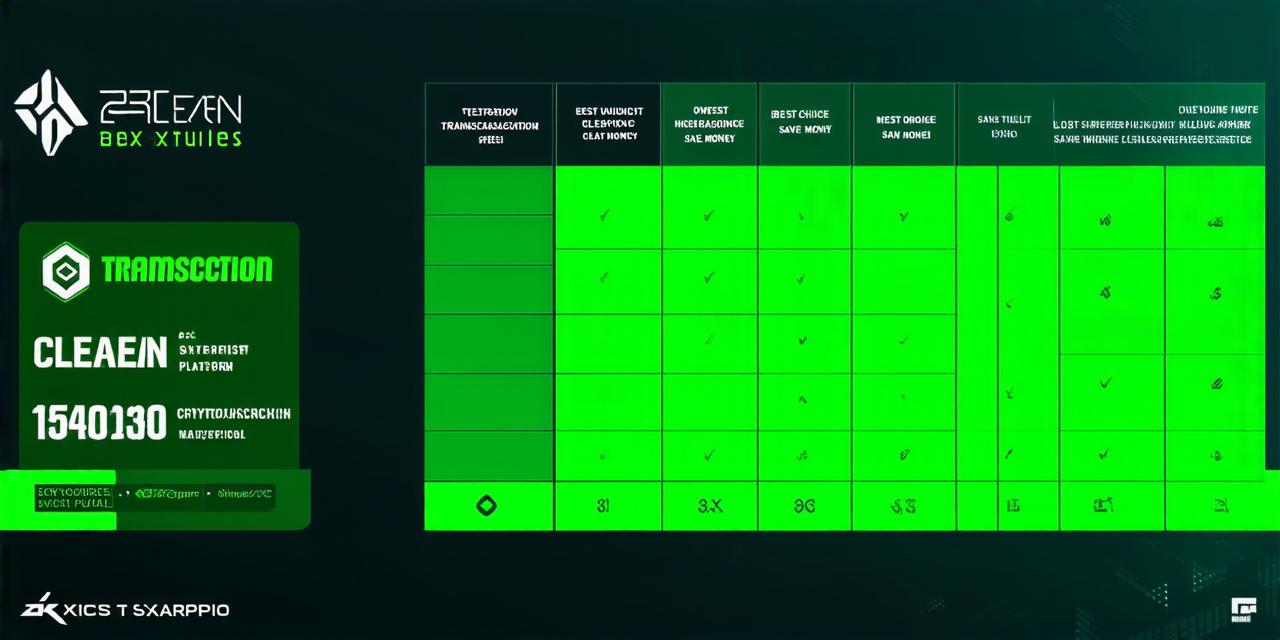1. Introduction: The Importance of Low Transaction Fees
Transaction fees are an important factor to consider when investing in cryptocurrencies. These fees can vary greatly depending on the platform you use, and they can eat into your profits if they’re too high. In this article, we will explore which platforms offer the lowest transaction fees and how you can make an informed decision when choosing a platform for your investments.
2. Comparing Transaction Fees: Understanding the Differences
When comparing transaction fees, it’s important to consider the type of platform you’re using. There are several types of cryptocurrency platforms, including centralized exchanges, decentralized exchanges (DEXs), and wallets. Each platform has its own set of fees, so it’s important to compare them before making a decision.
Centralized Exchanges
These are platforms that allow you to buy and sell cryptocurrencies using traditional payment methods like credit cards or bank transfers. They typically charge higher transaction fees than DEXs because they require intermediaries. Some examples of centralized exchanges include Coinbase and Binance.
Decentralized Exchanges (DEXs)
These platforms allow you to buy and sell cryptocurrencies directly with other users, without the need for intermediaries. They typically charge lower transaction fees than centralized exchanges because they don’t require intermediaries. Some examples of DEXs include Uniswap and Kyber Network.
Wallets
These are platforms that allow you to store your cryptocurrencies securely. They typically charge lower transaction fees than centralized exchanges because they don’t require intermediaries. Some examples of wallets include MyEtherWallet and Ledger Live.
3. Understanding the Factors Affecting Transaction Fees
There are several factors that can affect transaction fees, including network congestion, demand for a particular cryptocurrency, and the type of platform you’re using. It’s important to understand these factors when comparing transaction fees.

Network Congestion
If a network is congested, it may take longer for transactions to be processed, which can increase transaction fees. For example, Bitcoin has been known to experience high network congestion during times of high demand, leading to higher transaction fees.
Demand for a Particular Cryptocurrency
The demand for a particular cryptocurrency can also affect transaction fees. If demand is high, it may be more difficult to find a counterparty for a trade, which can increase transaction fees. For example, Bitcoin has historically been one of the most popular cryptocurrencies, leading to higher demand and potentially higher transaction fees.
Type of Platform
The type of platform you’re using can also affect transaction fees. Centralized exchanges typically charge higher transaction fees because they require intermediaries, while DEXs and wallets tend to charge lower transaction fees because they don’t require intermediaries.
4. Case Studies: How Low Transaction Fees Can Make a Difference
When it comes to cryptocurrency investing, every penny counts. That’s why it’s important to choose a platform that offers the lowest transaction fees possible. Here are a few examples of how low transaction fees can make a difference for investors.
John
John is an investor who wants to buy and sell Bitcoin on a centralized exchange. He compares the fees charged by Coinbase and Binance and finds that Binance charges lower transaction fees. John decides to use Binance because he wants to keep his costs as low as possible.
Sarah
Sarah is an investor who wants to trade Etherium on a DEX. She compares the fees charged by Uniswap and Kyber Network and finds that Uniswap charges lower transaction fees.
